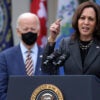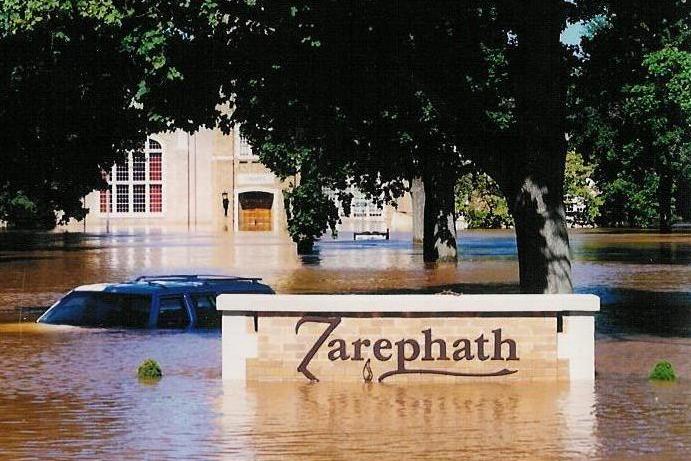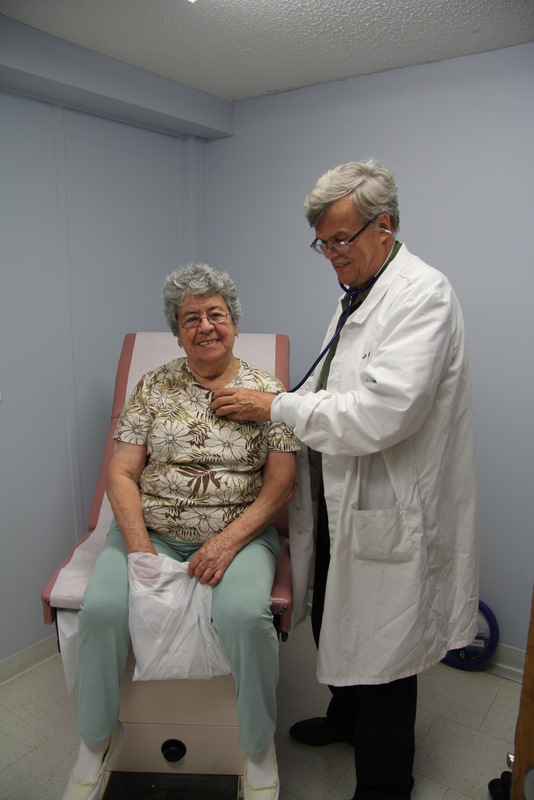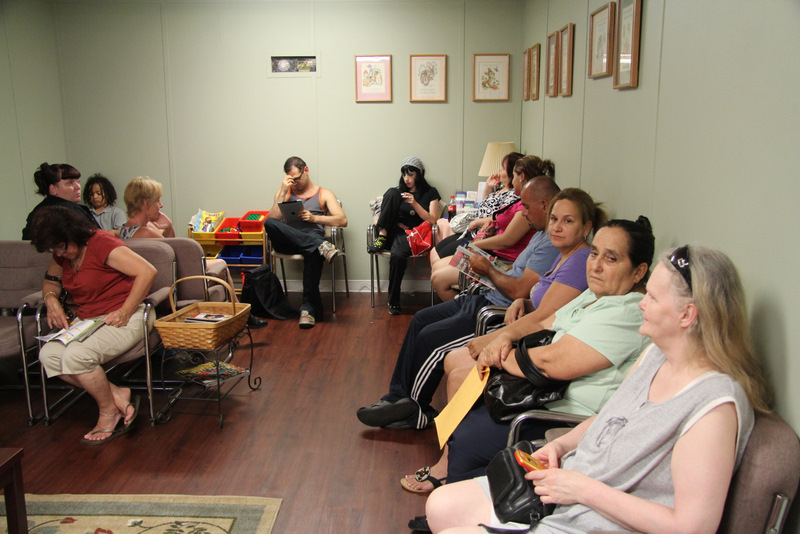Every time Alan Davide passes the intersection of Weston Canal Road and Chapel Drive in Somerset, N.J., he sends a prayer up to God.
“God bless these people,” Davide repeats.
For the last three years, the intersection in the small central New Jersey town has taken on special meaning for Davide, who found himself “in a bind” after losing his job in 2011.
The mild-mannered New Yorker worked for 25 years as a sales representative in the toy industry, and Davide panicked when he was laid off and realized he would be without health insurance.
But his former company recommended Davide go to the Zarephath Health Center, where Drs. Alieta and John Eck see patients enrolled in Medicaid or without insurance. And the husband-and-wife team do it for free.
“It’s a godsend,” Davide told The Daily Signal. “When you don’t have insurance—they’ve been very helpful. I always say, ‘God bless these people,’ because they’re so nice.”
The brainchild of John and Alieta Eck, the Zarephath Health Center opened in Somerset in 2003 as a way to serve low-income patients needing medical care. But their clinic differed from others already in existence: contrary to programs like Medicaid that serve low-income Americans, it wouldn’t cost taxpayers a dime.
“The people who are sick and have no funds would go to a clinic, which is what it used to be way before we had big government programs. We’ll take care of them. It’s in our DNA. That’s why we went to medical school, to care for people and not to be so worried about whether they can pay us or not,” said Dr. Alieta Eck.
The building the clinic calls home was given to them by the Zarephath Christian Church, and donations from the community help keep the lights on. Because there is little overhead and the doctors volunteer for free, John and Alieta Eck are able to keep their patient costs low at just $13 per patient.
“The people who are sick and have no funds would go to a clinic, which is what it used to be way before we had big government programs,” Alieta Eck said in an interview with The Daily Signal. “We’ll take care of them. It’s in our DNA. That’s why we went to medical school, to care for people and not to be so worried about whether they can pay us or not.”
>>> As Supreme Court Prepares to Hear New Obamacare Case, One Senator Is Preparing a Plan B
Biblical Beginnings
The story of the Zarephath Health Center’s origins has almost biblical beginnings.
In 1999, Hurricane Floyd flooded the Zarephath Christian Church’s original campus and submerged a small house located on the grounds under 14 feet of water. For years it remained dormant and unused.
But in 2001, leaders with the Pillar of Fire Methodist group—which owns the 1,000-acre area—moved to turn the house into a clinic. Two years later, Zarephath Health Center, named after the Bible’s “widow of Zarephath” and meaning “place of refining,” opened its doors debt free.
By 2010, the clinic had expanded substantially and a larger space was in order. With the help of the church, the Zarephath Health Center moved its operation to a 5,000-square-foot modular building located just across the street from where it began a decade earlier.
The clinic shares a walkway with My Neighbor’s Ministries—a mirror image of the Zarephath Health Center—which operates a pantry and thrift store to help low-income residents. Patients waiting to see doctors at the clinic often move between the two to take advantage of the free services.
Now, the center boasts a large waiting room, several private rooms where volunteer counselors can meet with patients, and five exam rooms. The Zarephath Health Center also maintains a fully stocked pharmacy and a room filled with donations ranging from food to medicine to medical equipment. It’s not uncommon for volunteers to disappear for hours at a time organizing the bevy of things.
One particular item of pride for Alieta Eck is the newly donated dentist’s chair—a symbol of the clinic’s ever-expanding patient services. Once a month, Dr. Jimmy Occhipinti, a dentist, comes in to see those needing oral care—also for free.
From the outside, the Zarephath Health Center looks unassuming, and in winter, its siding blends into the snow-covered landscape. But on the inside, the doctors popping in and out of exam rooms tell a different story.
Alieta and John Eck serve as the nucleus of the clinic, and they lead a team of volunteer doctors, nurses, administrative staff and medical students working around a health care system inundated with expanding Medicaid rolls and red tape.
>>> This Doctor Posts His Prices Online. Health Care Should Move in Same Direction.

Drs. John and Alieta Eck and their daughter, Lydia, at the opening of the Zarephath Health Center. (Photo: Dr. Alieta Eck)
Problems With Medicaid and the Affordable Care Act
Alieta and John Eck run Zarephath Health Center on the Mondays, Wednesdays and Thursdays that it’s open, but they make their living from their own private practice, Apelian, Eck, Eck and Matthews MDs, located 10 miles away in Piscataway.
Insurance isn’t accepted at either their private practice or the Zarephath Health Center, mostly because doing so requires costly overhead and little in the way of reimbursements.
At the Zarephath Health Center, the only payment patients make is to a donation box located in the waiting room—and that’s optional.
Some patients, like Davide, contribute what they have every visit.
The doctors will often see those on Medicaid, and they hear story after story about how difficult it is for patients enrolled in the program to find doctors who will actually see them.
“The bureaucracy to find a doctor that takes Medicaid is very difficult, and there’s nobody picking up the phone to work with a colleague to get the job done,” Alieta Eck said.
At the Zarephath Health Center, though, Alieta and John Eck have no qualms about reaching out to their vast network of fellow doctors to ask if they’ll see patients needing their services. The clinic often pays the doctors for their work, but their patients don’t have to worry about insurance networks, co-pays and deductibles.
If you ask John Eck about the Medicaid system, he can easily rattle off a list of statistics that speak to how it’s grown, especially under the Affordable Care Act.
“We in New Jersey, we used to be 1 in 8 was on Medicaid. Now, it’s 1 in 4. It used to take over one-third of our budget. I hate to see what is going to happen with New Jersey’s budget,” he said. “We have $13 billion going for Medicaid. What will happen with a $33 billion budget if it goes from $13 billion to $20 billion? We’re insolvent.”
At the federal level, 49 percent of all spending went toward Social Security, Medicare and Medicaid. According to a recent report from Romina Boccia, an expert in budgetary affairs at The Heritage Foundation, Medicaid is the “fastest-growing entitlement program.” In the next 10 years, the program will expand by 87 percent, which Boccia attributes to Obamacare’s Medicaid expansion.
To lessen the amount of people receiving health care through the government and reform the health care system, Alieta Eck, who unsuccessfully ran for Congress in 2014, points to what she calls the “Three C’s:” cash to pay for routine procedures, catastrophic coverage for “big-ticket items” and charity like the Zarephath Health Center.
“The very best health care system would not include the federal government,” she said. “We just don’t need the federal government, because all medical care is local. Not to say that I don’t see a role for insurance, but it should be for the catastrophic, not the routine.”
Getting More Doctors on Board
In recent years, Alieta Eck said she’s seen growing frustration among her colleagues in the medical field as they deal with more overhead and paperwork from insurance companies.
“I think doctors are despondent. They’re frustrated,” she said. “They’re watching their clinical judgment being questioned at every step of the way, as if people that are running insurance companies are telling them who they can see and what they can prescribe and what tests they can order.”
Alieta Eck said frustration is especially prevalent among medical students who spend their time learning how to fill out forms and electronic medical records while sitting in front of a computer.
“It’s part of the problem,” she said. “The bureaucracy is just growing and growing.”
Clinics like Zarephath Health Center help doctors and medical students get hands-on experience and return them to the root of why they entered the medical field.
“I come here twice a week, and I can honestly say I always feel good when I leave, that I made a difference in somebody’s life, that they came with a problem that I could solve, and then they looked at me and said, ‘This is wonderful. I really appreciate it,’” Alieta Eck said.
Jacob Jaslove, a 23-year-old medical student at Rutgers’ Robert Wood Johnson Medical School, said he recognizes that health care is “a hugely complicated problem.”
But, Jaslove, who volunteers at Zarephath Health Center, said that in his time at the clinic, he’s been able to give medical care to those who “really need it.”
“People really get into the medical field hoping to give back, and that’s something that’s easy to lose once you go through medical training,” he said. “Here, they clearly have not lost that.”
Currently, the federal government provides free federal medical malpractice coverage for those working in free clinics through the Federal Tort Claims Act. However, Alieta Eck said she still struggles to find physicians who are willing to donate their time and believes they need an incentive to do so.
To fix that, Alieta Eck proposed the Volunteer Medical Professional Health Care Act to the New Jersey Legislature. The legislation would require the Garden State to provide medical malpractice protection to physicians’ private practices if they donate four hours a week to a non-government free clinic.
The bill was introduced with bipartisan support in the state Senate in January and was referred to the Senate Health Human Services and Senior Citizens Committee.
Both Alieta and John Eck are certain that if the Legislature passes the law and Gov. Chris Christie signs it, access to medical care for the poor would be improved and the state would rely on taxpayers less to fund programs like Medicaid.
“The answer in charity should be genuine: your time, your money, and don’t involve a third party who will then reap an incredible amount of wealth from administering this so-called charity,” John Eck said. “Again, when someone else is paying for it, it becomes very expensive. We need to be starting charity again, not stopping it.”
>>> How One Nebraska Woman Lost Her Health Insurance Three Times Under Obamacare
Helping Others
Doctors at the Zarephath Health Center see up to 400 patients each month, and many have been going to see the Ecks for years, like Davide.
Alieta and John Eck believe there needs to be a return to charity in health care, and not the kind provided by the government.
“Government programs become a trap, where if you get a job or you get well, you lose your [low-cost] insurance. It’s really a poor model,” Alieta Eck said. “You want people to rejoice when you get a job, and we all rejoice when you get a job because you don’t need us anymore.”
But for those who need medical care and worry about how they’re going to pay for it, the Zarephath Health Center will help them. And for people like Davide, it eases his mind.
“Like I say, every time I pass this road, and I pass by here, I say ‘God bless those people.’”
































